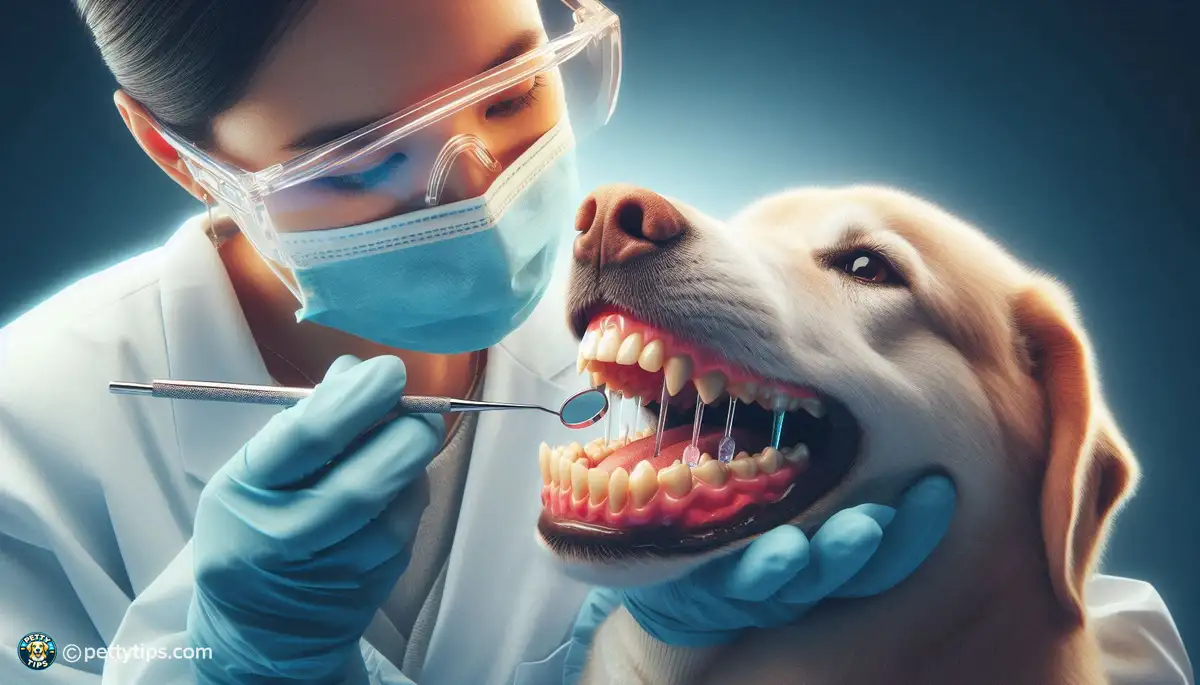
Transitioning Your Pet to Quality Food: A Comprehensive Guide
Mongrain Samuel - Oct 14, 2024 - 6 min read


dental health is a crucial aspect of your pet's overall well-being. Just like us, our furry companions can suffer from dental issues like plaque buildup, tartar accumulation, and gum disease. These problems can lead to discomfort, pain, and even more severe health issues if left untreated. That's why it's essential to prioritize dental care for your pets.
Pets, especially dogs and cats, are susceptible to various dental problems. Plaque and tartar buildup are among the most common issues, which can eventually lead to gingivitis and periodontal disease if not addressed. These conditions not only cause discomfort but can also affect your pet's ability to eat and even lead to systemic health issues like heart and kidney diseases.
dental treats are specifically formulated to promote oral health in pets. These treats often have unique textures or ingredients designed to help reduce plaque and tartar buildup, freshen breath, and massage gums. Many pet owners find dental treats to be a convenient way to supplement their pet's oral care routine, as they can be given as a reward or a snack between meals.
While dental treats can be beneficial, their effectiveness may vary depending on various factors. The size of the treat, chewing habits of your pet, and the ingredients used can all impact how well the treat works to clean your pet's teeth. Additionally, dental treats should complement a comprehensive dental care routine that includes regular brushing and professional cleanings by a veterinarian.
Dental diets are specially formulated pet foods that claim to promote dental health. These diets often have unique kibble shapes or textures that are designed to help reduce plaque and tartar buildup as your pet chews. Some dental diets also contain ingredients like enzymes or additives that claim to have additional benefits for oral health.
The effectiveness of dental diets in promoting oral health is a topic of ongoing research and debate in the veterinary community. While some studies suggest that dental diets can help reduce plaque and tartar accumulation, others have found limited evidence to support their claims. It's essential to consult with your veterinarian to determine if a dental diet is appropriate for your pet's unique needs.
If you're considering incorporating a dental diet into your pet's routine, it's essential to do so under the guidance of your veterinarian. Your vet can help you select a dental diet that is appropriate for your pet's age, size, and specific dental health needs. It's also essential to follow the feeding instructions provided by the manufacturer to ensure that your pet receives the proper nutrition.
While dental diets can be beneficial for some pets, they may not be suitable for every animal. Some pets may have dietary restrictions or sensitivities that prevent them from tolerating certain ingredients found in dental diets. Additionally, dental diets can be more expensive than traditional pet foods, so it's essential to consider your budget when incorporating them into your pet's routine.
When it comes to your pet's dental health, your veterinarian is your best resource. They can assess your pet's oral health status, discuss your options for dental care, and recommend the most appropriate products or treatments based on your pet's individual needs. Regular check-ups with your vet are crucial for monitoring your pet's dental health and addressing any issues before they become serious.
Regardless of whether you choose dental treats, dental diets, or a combination of both, it's essential to establish a comprehensive dental care routine for your pet. This routine should include regular brushing with a pet-friendly toothpaste, professional cleanings by your veterinarian, and the use of dental products recommended by your vet. By prioritizing your pet's dental health, you can help them enjoy a happier, healthier life.
As a pet owner, it's essential to monitor your pet's oral health regularly. Keep an eye out for signs of dental problems, such as bad breath, swollen gums, or difficulty eating. If you notice any concerning symptoms, don't hesitate to contact your veterinarian for guidance. By staying proactive about your pet's dental care, you can help prevent dental issues and ensure that your furry friend stays smiling for years to come.
In the debate between dental treats and dental diets, there's no one-size-fits-all answer. Both options can be effective tools for promoting your pet's dental health, but it's essential to consider your pet's individual needs, preferences, and dietary restrictions when making your decision. Consulting with your veterinarian and establishing a comprehensive dental care routine are key steps in ensuring that your pet maintains optimal oral health. With the right approach, you can help your furry friend enjoy a lifetime of happy smiles and wagging tails.